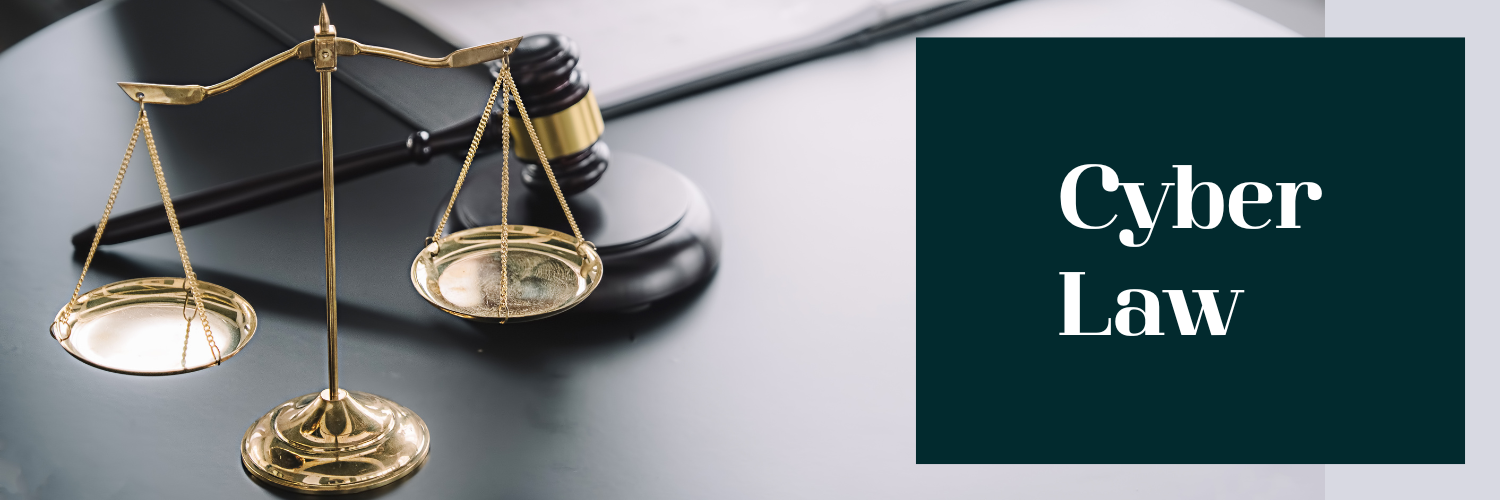The internet has become a crucial part of modern life, shaping how we communicate, work, shop, and even entertain ourselves. Along with these advancements, new legal challenges have emerged, ranging from cybercrimes like hacking and identity theft to issues of data privacy and intellectual property protection. Cyber law, often called the law of the internet, is a rapidly growing field designed to address these issues.
As digital technology continues to evolve, the need for clear legal frameworks to protect individuals, businesses, and governments is more important than ever. This has made cyber law an essential area of legal studies, offering exciting career opportunities for those interested in navigating the complex intersection of law and technology.
What is Cyber Law?
Cyber law covers all the legal matters connected to the internet and digital technology. It deals with online crimes, protecting personal data, securing intellectual property (like online content), and making sure digital communication is safe. Cyber law also helps regulate online shopping (e-commerce) and provides rules to protect both individuals and companies from internet-related problems. It creates a legal system to handle issues that come from the misuse of the internet.
The Growing Relevance of Cyber Law
The importance of cyber law is growing as the internet expands, leading to a major increase in online crimes like hacking, identity theft, online fraud, data breaches, and cyberstalking. Problems like privacy violations, stealing digital content, and the misuse of social media have also become more common. To protect people and businesses from these risks, strong legal systems are needed, which is why cyber law has become so important.
Key areas where cyber law is essential include:
- Data Protection and Privacy
As people and companies store a lot of personal information online, cyber law creates rules on how this data should be collected, stored, and shared. Laws like GDPR in Europe and the Personal Data Protection Bill in India set strict guidelines for managing personal data.
- Cybercrimes
Cybercrimes, such as phishing scams and ransomware attacks, are getting more advanced. Cyberlaw helps fight these illegal activities by setting punishments and giving victims a way to seek justice.
- Intellectual Property Rights
Digital content, like software, music, movies, and books, is protected by copyright laws. Cyberlaw makes sure these rights are respected online, stopping unauthorized use or sharing of copyrighted material.
- E-Commerce and Online Contracts
With the rise of online shopping and transactions, cyber law provides rules for handling contracts, digital payments, and disputes. It also covers things like online taxes and consumer rights in e-commerce.
- Cybersecurity Regulations
Countries are creating cybersecurity laws to protect important systems in areas like finance, healthcare, and energy. These laws require companies to have strong security measures and offer guidance on what to do if a data breach happens.
Cyber Law in India
In India, cyber law is mainly controlled by the Information Technology Act, 2000 (IT Act), which was updated in 2008 to cover more types of cybercrimes. This Act sets rules for electronic governance, punishments for online crimes, and protection of sensitive personal information. However, as technology grows rapidly, many legal experts believe that India needs updated and more detailed cyber laws to deal with newer challenges like cloud computing, blockchain, and AI-related cybercrimes.
Recently, there has been a stronger focus on data privacy and protection in India. The Personal Data Protection Bill, 2019, which is expected to become law soon, will introduce stricter rules for handling personal data, making cyber law even more important for legal professionals in the country.
Career opportunities
The growth of cyber law has opened up many career paths for legal professionals, such as:
Cybercrime Investigator
These experts collaborate with law enforcement to investigate and solve cybercrimes like hacking, identity theft, and online fraud.
Data Protection Officer (DPO)
As data privacy laws become stricter, companies need to hire DPOs to make sure they comply with regulations on data protection.
E-commerce and Intellectual Property Lawyer
Lawyers in this area help protect businesses’ intellectual property online and manage the legal challenges of online transactions.
Cybersecurity Consultant
Cybersecurity consultants guide businesses on legal strategies to defend against cyber threats and ensure they follow cybersecurity laws.
In-house Counsel for IT Companies
Many IT and tech companies have internal legal teams to deal with issues related to cyber law, such as data breaches and contract negotiations.
Conclusion
As technology continues to advance, the legal issues surrounding cyberspace are becoming more complex and widespread. This makes cyber law one of the fastest-growing and most important fields in legal studies. For future lawyers and legal professionals, specializing in cyber law opens up a wide range of opportunities that are essential for shaping the digital economy.
By entering this field, legal professionals not only protect the rights of individuals and businesses but also play a key role in creating a safer and more secure digital environment. With ongoing advancements in technology, data privacy, and cybercrime, the need for experts in cyber law is expected to keep growing, making it an exciting and rewarding career choice. To pursue a career in this promising field, studying at the Best Law College in Ghaziabad can provide the necessary knowledge and skills to excel.






